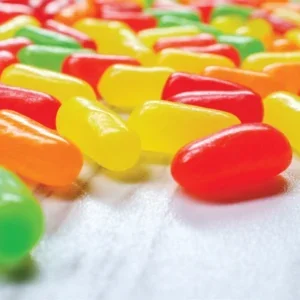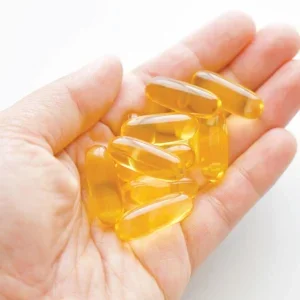
Ingredients Insight: Why are low-calorie sweeteners a better option for use in food and beverages now than they ever have been?
Professor Adam Drewnowski: Today there is a much broader range of choice when it comes to approximating the sweetness of sugar. The profile of sweetness, the lingering sweetness and the sweetness blends have been refined to the point where low-calorie sweeteners now offer a whole new range of options for creating sweetness in foods and beverages. Because low-calorie sugar substitutes taste good, people can choose to use them as part of a healthier diet without having to sacrifice the pleasure of eating the sweet foods they enjoy.
What innovations have there been in low-calorie sweeteners recently?
There has been a lot of progress. Steviol glycosides, which are based on extracts from leaves, are an interesting technological innovation broadening the use of and options for low-calorie sweeteners and sugar blends, all of which provide consumers and manufacturers with much more choice.
What are the trends in consumer patterns and the use of low-calorie sweeteners in foods and beverages, and what are their benefits?
It is broadly agreed that the public is consuming too many calories. Some of those calories obviously come from sugar. The FDA in the US says that sugar and solid fat are empty calories; this means that they provide calories but no nutrients. Reducing empty calorie intake is an important focus for public health authorities, and low-calorie sweeteners therefore provide one good option for achieving this objective.
Consumers select what they eat by taste. Because what people consume changes with age, low-calorie sweeteners, particularly in beverages, provide people with a variety of choice depending on where they are at a given time in their lives.
For example, very young people love to drink carbonated beverages. In general, they do not consume diet or low-calorie beverages, but men and women in their 40s and 50s do. As people get older, they tend to use tabletop sweeteners more, generally when they consume coffee and tea. Because people don’t want to compromise on the taste, low-calorie sweeteners can reduce calories without having to give up tastes people enjoy.
What results have you uncovered in your most recent research?
We have analysed several national public surveys undertaken in the US, as we wanted to know who the users of low-calorie sweeteners are. What our research revealed is that the use of low-calorie sweeteners is linked to people who are better educated, have higher incomes, and who generally have good dietary habits and more active lifestyles.
According to data published in the latest Healthy Eating Index, people who use low-calorie sweeteners also consume more fruit, vegetables and whole grains in their diets.
This suggests that low-calorie sweeteners are a proxy marker for other healthy behaviours. Therefore, low-calorie sweeteners form part of a constellation effort on exercise and diet.
Our data shows that people who consume low-calorie sweeteners are actively trying to do something about improving their diets; they are also more active and less likely to smoke.
What do you think the future trends in the use and consumption of low-calorie sweeteners in food and beverages will be?
Sweet tastes are everywhere. Sugar contributes 14-15% to the diet – maybe even more for some children or adolescents who consume empty calories. As young people consume the most sugar, perhaps the consumption of low-calorie sweeteners should be targeted at the youthful generation so that we can address issues such as childhood obesity with greater success.
Low-calorie sweeteners provide a wider range of reduced calorie, low-calorie or non-calorific beverages. They can also be added to water and food products, as they do not promote hunger or food cravings. The impact on eating is going to be the same.
The emergence of new dietary trends has signalled a rise in demand for low-calorie sweeteners. This has been driven by innovations in new blends of sweeteners and research that identifies the health benefits of consuming low-calorie sweeteners.
A strong body of scientific evidence suggests that low-calorie sweeteners can empower people to make smarter, better and more-informed choices when it comes to improving their health and well-being.
The International Sweeteners Association in the spotlight
As the authority on low-calorie sweeteners – recognised by the European Commission, national and international regulatory authorities, and the World Health Organization (WHO) – the International Sweeteners Association (ISA), represents manufacturers and users of low-calorie sweeteners, foods and beverages.
The ISA was established in 1983 with a simple mission: to bring together members of the low-calorie industry and ensure that all audiences – from decision-makers to the scientific community and the media – are kept informed and share the most up-to-date and accurate information about low-calorie sweeteners. The ISA provides policymakers and healthcare professionals with the latest science-based data and engages in the articulation of balanced regulations relating to low-calorie sweeteners in the European Union.
By informing and educating stakeholders about the role of low-calorie sweeteners in a balanced diet, the ISA’s contribution enables more people to become empowered to make better choices about their health and lifestyle. People who suffer from diabetes or obesity can enjoy sweet tastes without impacting on their health, and the wider public can make informed choices about their diet and lifestyle when armed with the correct information.





